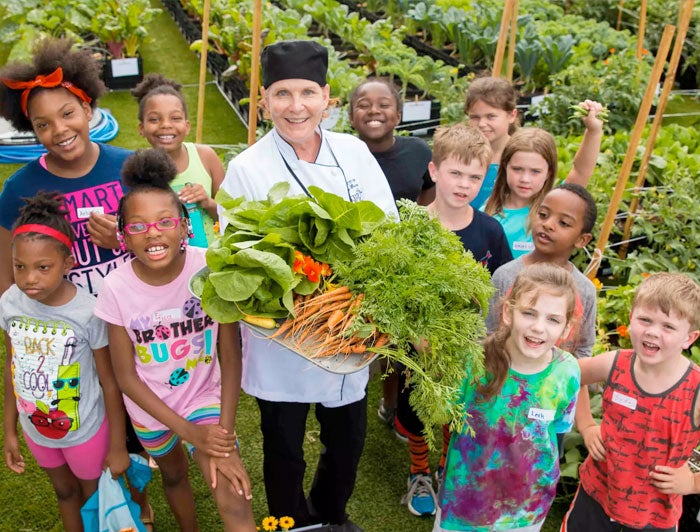Boston Medical Center is the Hub of Community Care
Boston Medical Center
Boston, Ma.

The World Health Organization’s foundational principle that “Health is a state of complete physical, mental and social well-being and not merely the absence of disease or infirmity,” could have been plucked right out of the playbook for Boston Medical Center.
There is scarcely a single aspect of human health: physical, mental, emotional, and even financial, that BMC hasn’t carefully considered and found a way to nourish. The scope of its operations, often in tandem with community partners, provide a national model for how an ironclad commitment to community health can change lives for the better.
BMC’s web site tells visitors, “We hope that you’ll come to BMC when you’re sick – but we want to help you stay healthy too.” And they mean it. BMC’s approach rests on the simple precept that staying healthy involves a lot more than occasional trips to the hospital.
Accordingly, the organization has developed numerous programs and services that help address some of the root causes of medical issues, with the goal of improving health outcomes for area residents.
In 2017, for example, it committed $6.5 million to improving housing for the people and communities it serves, proving sorely needed stability while also supporting wraparound services including behavioral health and substance use disorder services and medical care.
A separate but related initiative, the Elders Living At Home Program, provides case management services, including legal support, to older adults who are at imminent risk of losing their housing and becoming homeless.
At the same time, BMC has invested in projects that support development of healthy local retail to increase access to amenities like food markets and gyms. It has battled hunger-related illness and malnutrition for low-income patients through programs such as the Preventive Food Pantry and The Teaching Kitchen, which feature nutritionists who prescribe foods that improve physical health, prevent future illness, and help ease recovery from illness or injury.
And although you may not hear the grinding gears of a John Deere tractor coming through the air vents, BMC also operates a 2,658 square foot Rooftop Farm growing more than 30 varieties of crops. The farm not only provides fresh, local produce to hospitalized patients, cafeterias, Teaching Kitchen, and Preventive Food Pantry, but is also part of BMC's commitment to sustainability — reducing storm water runoff and increasing green space.
In addition to creating programs that feed and house the body, BMC has been equally active in protecting it.
Since 2006, its Violence Intervention Program (VIAP) has worked to guide victims of community violence through physical and emotional recovery using a trauma-informed approach to care. VIAP provides crisis intervention, mental health services, family support services, and concentrates on empowering victims of violence to return to their communities, make positive changes in their lives, and strengthen others who are affected by violence.
BMC’s comprehensive and highly effective array of programs and services that have demonstrably improved the health of the communities are the result of due diligence.
In 2022, in collaboration with multiple stakeholders including community organizations, health centers, hospitals, and the Boston Public Health Commission, BMC conducted a comprehensive Community Health Needs Assessment.
Key findings confirmed that BMC is already working to address and alleviate many of the challenges that community members say they face. These include financial stability and mobility; housing affordability; food insecurity; access to health care, social services, and childcare; chronic disease; mental health; substance use; violence and trauma; income and education; workforce and employment; and mortality.
This vital feedback informed BMC’s 2022 Implementation Strategy, which serves as its roadmap for its Community Benefits Programs and Initiatives for the next three years.
Asking, listening, learning, collaborating, acting. This approach to improving community health has served BMC and its patients well and promises to continue into the future.

